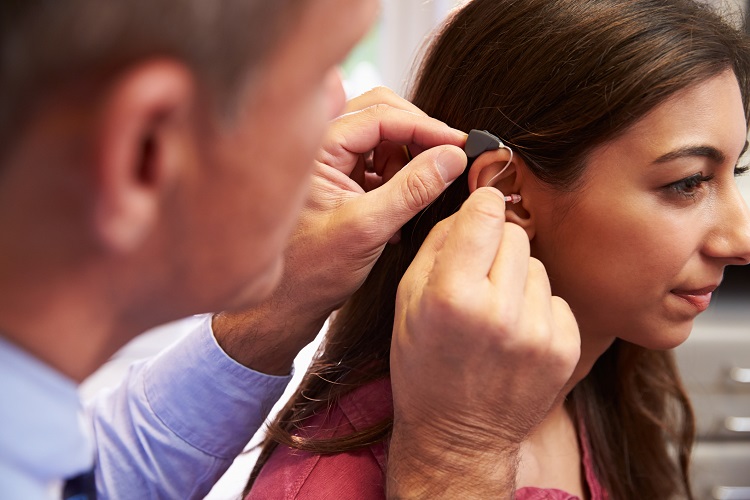Getting Tuned In: Tips for Better Hearing

When Dolores Cunningham’s family told her she wasn’t hearing as well as she used to, her first reaction was not to believe them. “I thought they were nuts,” says the 81-year-old Liberty Township resident.
Her husband, age 85, has worn hearing aids for years to compensate for damage sustained during military service. He coaxed Dolores to get her ears checked, and her daughter recommended an ear, nose and throat (ENT) doctor at Group Health, TriHealth Physician Partners, in the Mason Community Center.
“The doctor cleaned some wax out of my ears and said I could have my hearing tested right in the same building,” Dolores says.
She made an appointment with Group Health Audiology the following week and learned that she did have some hearing loss.
“It went very well. I was very impressed. Jeannie [Marchionda, audiologist] said I could try hearing aids, but she didn’t push me. She gave me options and told me what she thought I’d be happiest with,” Dolores relates.
With her new hearing aids, Dolores says hearing conversations is easier, and many people don’t even notice she is wearing them.
- Related: Swimmer's Ear: Why Me?
Hearing Loss: A Common Problem
About 20 percent of adult Americans experience some degree of hearing loss, and one in three people over age 65 has hearing loss, according to the Hearing Loss Association of America.
Brian Cusick MD, an ENT with Mason Group Health, says the most common causes of hearing loss in adults are aging and noise.
Dr. Cusick advises, “Seek evaluation when you feel you are not picking up sounds and conversations around you – or if family members are recommending you get your hearing checked.”
Removing wax and fluid and correcting structural damage with surgery are some of the options available to certain patients with hearing loss.
Identifying Children with Hearing Loss
Less than .3 percent of children have hearing problems. Infant screenings at birth and school screenings help with early diagnosis. In addition, parents may notice other signs of hearing issues, such as their child turning up the television volume, having problems with school performance or problems with speech.
Wax or fluid in the middle ear may contribute to hearing difficulties and can be easily treated.
A condition causing overgrowth of bone in the middle ear – called otosclerosis – may interfere with hearing and require surgical correction as people reach their 20s and 30s.
For children as well as adults, repeated exposure to loud noises through personal listening devices, loud machinery, or other noisy activities may permanently damage hearing.
4 Ways to Protect Your Hearing
Dr. Cusick recommends simple ways to protect your hearing:
- Wear ear plugs when you are exposed to loud noises – machinery, a loud concert, a lawn mower.
- Use a moderate volume for devices you put in your ears.
- Do not use Q-tips (cotton swabs) in your ears, which can cause wax buildup and lessen hearing.
- Get a hearing test sooner rather than later, especially if the hearing loss is just in one ear. Your chances of correcting hearing loss increase with early intervention.
In addition, Dr. Cusick notes that sudden loss of hearing may indicate an inner ear infection, which should be treated as early as possible.